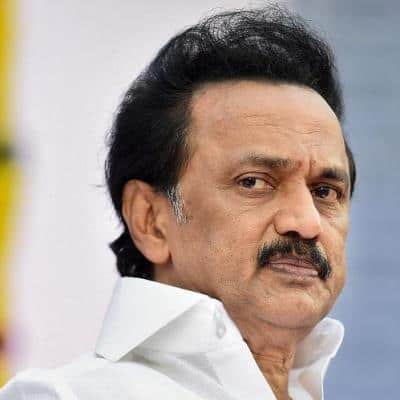PM Mayawati: Unthinkable Is Possible
When the Bahujan Samaj Party drew a blank in the 2014 Lok Sabha elections and was subsequently reduced to a mere 19 seats in the Uttar Pradesh assembly in the 2017 state polls, political observers and analysts were quick to declare that the party’s chief Mayawati had lost her touch and was on her way out.
But there has been a dramatic turnaround since then. As the ongoing Lok Sabha election enters the final phase, the same Mayawati, who was being written off as a political has-been, is being mentioned as a possible Prime Ministerial candidate provided the opposition parties notch up a respectable number of seats to form the next government.
Mayawati herself indicated recently that she has Prime Ministerial ambitions when she declared that she plans to contest the Lok Sabha election. She chose to stay away from the current general election but her decision sorely disappointed her Dalit support base which is pinning its hopes on “Behenji” occupying the country’s top post.
The BSP chief’s latest statement is essentially a message to her supporters that they should come out and vote in large numbers as she is very much in contention for the Prime Minister’s post. If the opposition is in a position to form the government later this month and she does emerge as its Prime Ministerial candidate, rules allow her six months to get elected to either house of Parliament.
Like West Bengal chief minister and Trinamool Congress chief Mamata Banerjee, Mayawati has the necessary credentials to lead the country. Not unlike Mamata Banerjee, the BSP chief carved out a place for herself in a caste-ridden and patriarchal society to emerge as the unquestioned leader of her party. Mayawati has been a four-time chief minister of the country’s most populous and politically-important state of Uttar Pradesh; has proved to be a strong and efficient administrator; ensured accountability from her officials; tamped down on atrocities against Dalits and seen to it that the law and order situation in the state was not allowed to get out of hand.
Also Read: Will Project Behenji As PM, Says Jogi
On the flip side, there have been serious corruption charges against her, which continue to haunt her even today. She has also been accused of squandering public funds on erecting statues of the BSP’s election symbol (elephant), of herself, her mentor Kanshi Ram and other scheduled caste leaders. But this has not dimmed her popularity among the Jatavs who are convinced that Mayawati is being hounded because she is a Dalit.
In fact, Mayawati’s caste is her chief calling card. And that’s where she scores over Mamata Banerjee. A woman and a Dalit to boot, the daughter of a post office employee was a school teacher before she ventured into the world of politics when she was adopted by Scheduled Caste politician Kanshi Ram as his protege, becoming a key member of the Bahujan Samaj Party founded by him. Since then, she has emerged as a leader in her own right, becoming an icon and inspiration for the large scheduled caste population who view her as a symbol of Dalit empowerment. When she overcame all social and economic hurdles and first took over as Uttar Pradesh chief minister in 1995, the appointment of the first Dalit woman to this post was hailed by late Prime Minister P V Narasimha Rao as a “miracle of democracy.”
ALSO READ: BSP Remains A Force To Reckon With
Unlike Mamata Banerjee, whose presence is confined to West Bengal, Mayawati has the advantage of tapping into the support of Dalits across the country though Uttar Pradesh remains her party’s main base. If a second miracle was to catapult her to the Prime Minister’s post, it will mark a huge victory for the country’s Dalits who have been oppressed by the upper castes for centuries. It will go down in Indian history as the country’s “Barack Obama” moment, finally giving the scheduled castes a share in political power.
ALSO READ: Can Didi Rise Above Bengal Politics?
It is precisely for this reason that other opposition parties, including the Congress, will have no choice but to endorse Mayawati’s candidature if her name is proposed for the Prime Minister’s post. The country is ready for a Dalit Prime Minister. Mayawati’s elevation will come at a time when the country has been witnessing an increase in the incidence of violence against Scheduled Castes since the Modi government came to power in 2014. There is simmering anger among the Dalits which can be best assuaged if the BSP chief moves into Delhi’s South Block office of the Prime Minister.
Having proved her mettle as a chief minister, Mayawati should not find it difficult to adjust to her new role as the country’s premier. While she will be expected to bestow special favors on Dalits in terms of better funding for their education and improved job opportunities, Mayawati’s interests will be better served if she avoids playing the caste card in the appointment of her ministers and advisors. She will need all the expert advice because handling the country’s economy and foreign affairs is uncharted territory for her. A failure to do has the potential of inviting a backlash from the upper castes who will not be happy to see a Dalit woman occupying the country’s top post.
Though Mayawati, like Mamata Banerjee, is autocratic, mercurial and unpredictable, she also has a streak of pragmatism in her. For instance, the BSP chief did not hesitate to put aside her aversion to pre-poll alliances and entered into a partnership with the Samajwadi Party, her bitter political rival, once she realized that her party’s political survival was at stake after it was pushed to the margins by a rampaging Bharatiya Janata Party first in the last Lok Sabha election and then the 2017 assembly poll.
Similarly, Mayawati resorted to deft “social engineering” in the run-up to the 2007 assembly elections in Uttar Pradesh when she realized it would have to expand her support base as it would not be possible for her come to power with the sole support of Dalits. Mayawati then went on to do the impossible when she extended an olive branch to Brahmins, even though her party’s identity was based on destroying the Brahminical order. The BSP chief admitted Brahmins to the BSP ranks, fielded them in elections and promised them positions of power both in the party and the government. The strategy paid off as Mayawati went on to form the government in Uttar Pradesh then with a comfortable majority.
Despite Mayawati’s best efforts to be even-handed in her approach, it would be naïve to believe that her appointment to the country’s highest office will not be resented by the upper castes whose members have been wielding political power for decades. Don’t forget, Obama was succeeded by Donald Trump.


